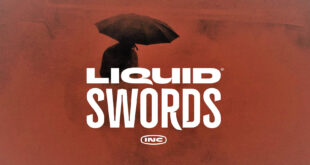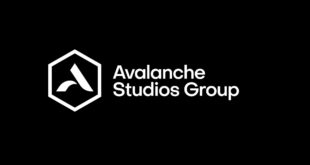Part one of our interview with Avalanche CEO Christofer Sundberg discussed how the company is recuperating as the world tip-toes out of a grave financial crisis.
But when the dust settles, what image of the indie scene will emerge? Some studios are vocal about the collapse of ‘true’ independence, with publishers holding a monopoly of the industry’s ideas and projects.
Avalanche, for better or worse, remains a fiercely autonomous entity. We talk to Sundberg about the strengths and weaknesses of that position.
As well as securing The Hunter rights, you bought back the AionGuard IP from an unnamed publisher a few years back. Is it fair to say that Avalanche is very keen on retaining its own IP?
Absolutely. It’s the only way for an independent developer can increase the worth of the company. Staff and technology has some value, but this comes and goes.
The best way to keep your own independent studio valuable is to keep your own ideas and your own IP, because it gives you have more creative freedom There are just so many things that are just so much easier and more fun if you keep your IP.
Last week Gas Powered Games’ Chris Taylor was speaking on that subject, saying that indie studios have lost their independence over the last 15 years, some of which have essentially become outsourcing studios for publishers.
Yes I think that’s true but that’s generally an American thing.
American developers tend to sell their companies way too early, and then they whine about not getting enough money when their projects become successful after a couple of years of being owned by a big publisher and not really being in control.
There are quite a few successful managers when it comes to being acquired by a publisher. But many developers look at this and always see the dollars and not the significance of actually being owned by someone else. Being acquired means that, ultimately, you’re not in control of your destiny, or your daily work.
And not being in control of your own company means that any compassion you have for the business is, in the end, inconsequential. If you looked at a company like RedOctane, even two years ago, you would say they were in exceptional health.
Yes, absolutely. The strangest thing is that, yes we had a very tough year, but we had no financial loss. However, we don’t have external share holders, so we don’t have that pressure to report to directors. The motivation to get to work every day should be more than about money.
I still believe publishers should cancel more projects in case the developers fail to deliver quality, before the investments become too high.
A better due diligence process for developers is needed, as is a higher demand for quality, along with a courage to invest more money in fewer projects, rather than spreading the budget over many ‘OK’ projects.
Avatar is a great example of a game that should never have come out, regardless of how much money it made. I don’t know if it was profitable or not, but games like that give licence-based games a bad reputation, and that reputation is already at an all-time low, and you’re shootingyourself in the foot.
Avalanche has suffered heavy losses over the last two years. Are you finally beginning to feel the money troubles alleviate?
Well, as I said, we’ve just started up a new bigger project, so we’re definitely starting to feel better. Things are looking brighter again.
But I think the whole industry is a big chicken farm right now. There’s still so much confusion and you hear publishers saying they need to revise their businesses. But I suppose one good thing about this whole recession is that it’s washed away the gold-diggers. [laughs]
In this industry, if you want to be successful you have to be patient, and look beyond that big bag of money. There is no way to make a quick buck in the game industry. The sooner people realise that, the better.
How important is Just Cause 2 to the studio’s financial situation?
It’s the first big console title, so it has huge importance to the studio, and huge importance to Square Enix.
Project-wise, I don’t think its release will affect our ability to sign up new projects, but just for motivation and the status of the studio it will be of huge importance.
Finally, what has happened to Aionguard?
Aionguard it… it took a strange direction, and we attached a licence to it, and changed the whole game. It’s still something that we’d like to do at some point, but right now we’re focusing on this new project, which is not Aionguard.
What happened I think with Aionguard is that it wasn’t the time for a new IP. Unfortunately, I think the cancellations were more a sign of bad times than a bad IP. We’ll see what happens with it.
We’ll continue to talk to publishers about it and hopefully one day we’ll work on it again.

 MCV/DEVELOP News, events, research and jobs from the games industry
MCV/DEVELOP News, events, research and jobs from the games industry



